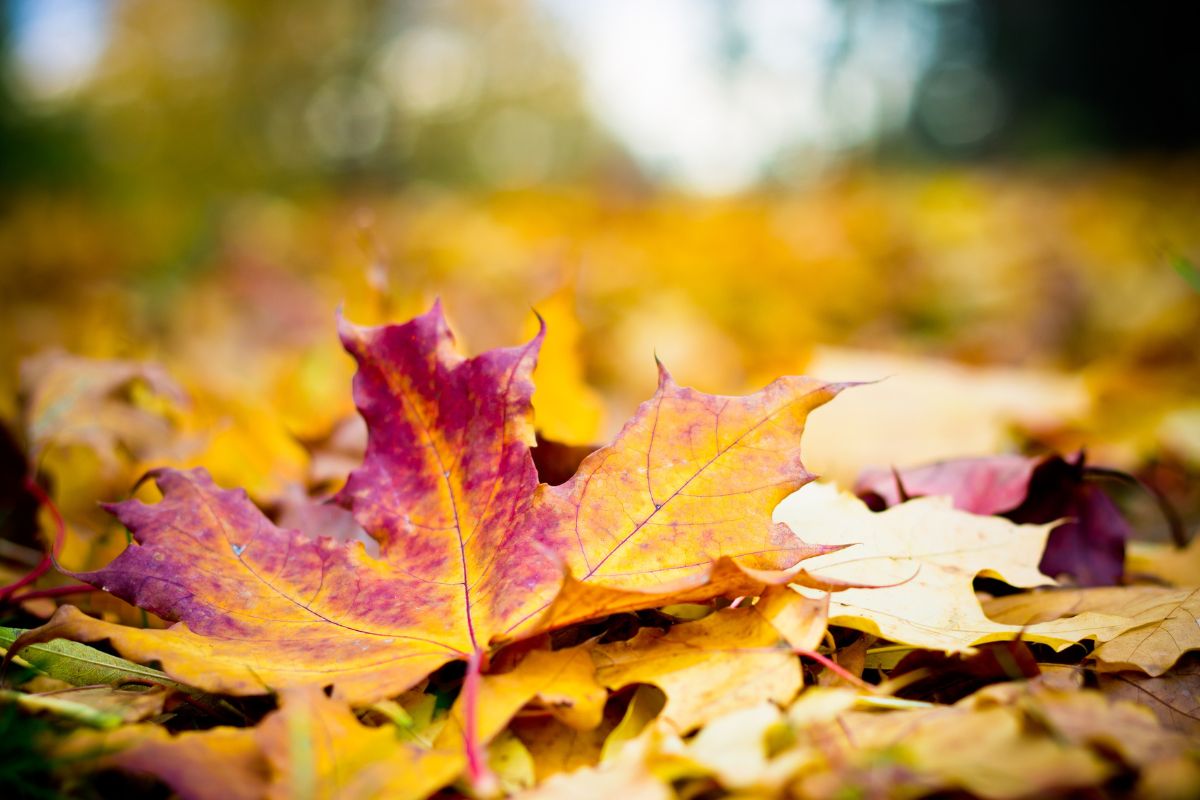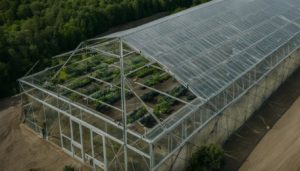Composting is an easy and effective way to help the environment, reduce your carbon footprint while also helping you save money on yard waste disposal fees.
But why is composting better than burning leaves?
Well, most people will agree that composting is better than burning leaves, but they’ve got no details on the reasons for this perspective. Luckily, I’ve got all the answers!
Read on to understand how composting beats burning leaves when it comes to giving back to Mother Nature.
Composting
Composting is a great way to reduce the amount of waste that goes into landfills and can help keep our environment healthy.
It also has benefits for soil health, as it helps recycle nutrients back into the earth which improves water conservation by reducing runoff pollutants.
Composting not only reduces the amount of organic matter in landfills but when added to soil it increases fertility and provides essential micro-nutrients needed for plant growth.
Additionally, composting encourages biodiversity in soils which further supports plants’ ability to absorb more water from rainfall or irrigation.
Composting not only helps reduce waste, but it also makes for nutrient rich soil.
Composted materials provide a natural fertilizer that boosts nutrients like nitrogen and phosphorus which are essential for healthy growth in plants.
It also improves water retention, so less irrigation is needed to keep your garden thriving.
Plus, compost works as an effective weed control measure since it blocks out light and prevents weeds from sprouting up!
And the best part–compost has incredible potential as an all-natural fertilizer.
This means no more using harsh chemicals or synthetic fertilizers on your lawn or in your garden beds – just pure, natural goodness full of the necessary micro-nutrients that help promote strong root systems and lush foliage.
So, get ready to reap the rewards of composting – you won’t regret it! Onto the environmental impact of burning leaves!
Burning Leaves
An assessment of the environmental impact of burning leaves reveals why this is not the best option for dealing with fall foliage.
When leaves are burned, they release toxins into the air that can have an adverse effect on our health.
Plus, by releasing these chemicals into the atmosphere, you’re contributing to global warming and climate change – something none of us want!
Additionally, burning leaves prevents them from breaking down in nature and returning vital nutrients back to the earth.
This process not only affects plant growth but it also disrupts local ecosystems as well.
Which Is Better?
Burning leaves seems like a great way to get rid of the mess and make it look immaculate. But, burning them actually does more harm than good.
As mentioned earlier, burning leaves releases toxins into the air, contributing to air pollution, which in turn could have an adverse effect on our health.
What’s more, it contributes to global warming and makes it even more difficult for the leaves to decompose.
Composting is by far the better option because it can reduce emissions, save money, create soil that has better nutrition, and improve air quality.
When composting instead of burning leaves, organic materials are broken down into nutrient-rich particles which add essential minerals back into your garden’s soil. This process helps to retain moisture in the soil while adding new nutrients for plants and vegetation – creating an environment where they can flourish!
Plus, when you compost rather than burn you’re reducing harmful pollutants from entering our atmosphere. Ultimately, you’re playing a part in improving air quality around us all!
Advantages Of Composting Over Burning Leaves
Composting is a great way to make use of yard waste and other organic materials, while also providing numerous environmental benefits.
Cost Effectiveness
Composting can have a positive economic impact because it reduces the amount of money spent on buying fertilizer for your garden or lawn.
In comparison with burning leaves, with composting, cost savings are realized as there is no need to purchase fuel to burn them.
Furthermore, depending on how much you’re currently spending for gardening products such as mulch and manure, you could potentially save even more money by making your own compost instead.
Benefits To The Soil
The composting process introduces beneficial microorganisms to the soil, which help to:
- Improve soil fertility
- Enhance water retention
- Improve soil structure
Moreover, composting helps restore nutrients that may have been lost during the growing season, so plants will be healthier in following years.
This ultimately means less time and effort spent maintaining gardens or yards since the necessary nutrients are already present in the soil from the composted material.
Environmental Friendliness
Burning leaves leads to an increase in air pollution due to its emission of carbon dioxide and other harmful particulates.
This is a sharp contrast to composting which does not produce any harmful emissions at all.
How To Get Started Composting
Composting may seem like a lot of work, but it’s actually really easy to do and the benefits are worth it!
Instead of burning leaves, recycling elements, kitchen scraps, and garden waste through composting takes very little time or effort.
All you need is a compost bin in your backyard and you can get started right away with composting. To make things even easier, there are many helpful products available today that will help streamline the process.
In no time at all you’ll be able to turn those organic materials into rich compost soil that will nourish your plants and flowers while also helping keep landfills from overflowing.
Plus, by using compost as fertilizer for your lawn or garden instead of chemical-based options, you’re doing your part to protect the environment too.
With just a few tools and some basic knowledge about composting techniques, you’ll soon be seeing amazing results in your yard or garden!
Conclusion
In conclusion, composting is a great way to reduce waste and provide an environmentally friendly alternative to burning leaves. With its many health benefits for our planet as well as ourselves, it’s no wonder why more people are turning to composting over other options.
Compost can be created with materials from around the house such as kitchen scraps, lawn clippings and shredded paper. It only takes about two months for compost to be ready for use in your garden or flower beds. All you need is some space (about 3x3ft) and a few simple tools like a pitchfork and tarp cover.
When done properly, composting has very minimal safety risks associated with it compared to burning leaves which can cause air pollution.
In fact, one statistic shows that when you compost rather than burn yard waste, it helps keep up to 15 pounds of pollutants out of the air each year! That’s huge considering how much these particles contribute to global warming and climate change if left unchecked.
Composting is not only better for the environment but also offers us healthier soil conditions while reducing the amount of garbage you send off to landfills. For these reasons alone, it’s worth giving composting a try this season so you can enjoy all its amazing benefits!
Frequently Asked Questions
What Are The Health Benefits Of Composting?
Composting has many health benefits that can’t be ignored!
It reduces waste, prevents pet waste from entering the environment and helps control disease.
Plus, it improves soil fertility by adding organic material to the earth.
This is great news for those who want to help the planet and make a difference in their community.
Composting is an easy way to do both: reduce your carbon footprint and give back at the same time.
What Are The Best Materials To Use For Composting?
Composting is an important part of reducing waste and creating a more sustainable environment, so it’s critical to get the ingredients right.
Dried leaves are great for adding structure and aerating your compost pile, while using worms helps break down the material faster.
You’ll also want to create layers with different materials like grass clippings or food scraps (including eggshells!), and add moisture when needed.
To keep everything healthy, make sure you’re regularly turning over your compost pile and aerating it too!
Are There Any Safety Risks Associated With Composting?
Composting can come with a few safety risks, such as odors, pests, soil erosion and air quality. Plant diseases are also something to be aware of when composting.
However, if done correctly, composting is actually beneficial for the environment by reducing soil erosion and improving air quality.
It’s important to keep an eye out for any potential harm that may arise from improper composting practices.
How Long Does It Take For Compost To Be Ready For Use?
Composting takes time and effort, but the results are worth it!
The entire composting process could take a few weeks up to 2 years, depending on factors like the size of the pile, temperature, method of composting, etc.
Once these materials have broken down completely, they can be harvested for use in gardening projects or other applications.
How Much Space Is Required For Composting?
Composting requires space, depending on the type of composting you’re doing and how much material you’re dealing with.
For example, if you’re using a container to do some basic recycling methods or soil preparation techniques, then a 1-2 cubic feet bin should be enough.
If you’re harvesting techniques require more expansive composting methods like pest management, then larger amounts of space may be needed.
But generally speaking, it’s best to have at least 10 square feet available in order to get your compost up and running smoothly!
Photo by Holdosi.


